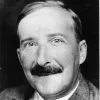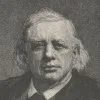Man seems to be a rickety poor sort of a thing, any way you take him; a kind of British Museum of infirmities and inferiorities. He is always undergoing repairs. A machine that was as unreliable as he is would have no market.
Mark Twain (1835-1910) American writer [pseud. of Samuel Clemens]
Letters from the Earth, “The Damned Human Race,” sec. 5 “The Lowest Animal” (1962) [ed. DeVoto]
(Source)
Quotations about:
illness
Note not all quotations have been tagged, so Search may find additional quotes on this topic.
Life is a disease temporarily relieved every sixteen hours, by sleep. The complete cure: death.
[Vivre est une maladie dont le sommeil nous soulage toutes les seize heures. C’est un palliatif. La Mort est le remède.]
Nicolas Chamfort (1741-1794) French writer, epigrammist (b. Nicolas-Sébastien Roch)
Products of Perfected Civilization [Produits de la Civilisation Perfectionée], Part 1 “Maxims and Thoughts [Maximes et Pensées],” ch. 2, ¶ 113 (1795) [tr. Parmée (2003), ¶ 91]
(Source)
(Source (French)). Alternate translations:Life is a malady in which sleep soothes us every sixteen hours; it is a palliation; death is the remedy.
[Ballou, comp. (1872)]Living is a disease from the pains of which sleep eases us every sixteen hours; sleep is but a palliative, death alone is the cure.
[tr. Hutchinson (1902)]Life is a disease from which sleep gives us alleviation every sixteen hours. Sleep is a palliative, Death is the remedy.
[tr. Mathers (1926)]Living is an ailment which is relieved every sixteen hours by sleep. A palliative Death is the cure.
[tr. Merwin (1969)]To live is a malady from which sleep vouchsafes us relief every sixteen hours. That is a palliative. The remedy is death.
[tr. Pearson (1973)]To live is a sickness that sleep comforts every sixteen hours. It's a palliative. Death is the cure.
[tr. Sinicalchi]Life is a sickness to which sleep provides relief every sixteen hours. It's a palliative. The remedy is death.
[Source]
A sick man that gets talking about himself, a woman that gets talking about her baby, and an author that begins reading out of his own book, never know when to stop.
Men that look no further than their outsides, think health an appurtenance unto life, and quarrel with their constitutions for being sick; but I that have examined the parts of man, and know upon what tender filaments that fabric hangs, do wonder that we are not always so; and considering the thousand doors that lead to death, do thank my God that we can die but once.
[Men that looke no further than their outsides thinke health an appertinance unto life, and quarrell with their constitutions for being sick; but I that have examined the parts of man, and know upon what tender filaments that Fabrick hangs, doe wonder that we are not alwayes so; and considering the thousand dores that lead to death doe thanke my God that we can die but once.]
Thomas Browne (1605-1682) English physician and author
Religio Medici, Part 1, sec. 44 (1643)
(Source)
Unhappiness makes people vulnerable, incessant suffering unjust. Just as in the relations between a creditor and a debtor there is always an element of the disagreeable that can never be overcome, for the very reason that the one is irrevocably committed to the role of giver and the other to that of receiver, so in a sick person a latent feeling of resentment at every obvious sign of consideration is always ready to burst forth.
But there are more disorders of the mind than of the body, and they are of a more dangerous nature.
[At et morbi perniciosiores pluresque sunt animi quam corporis; hi enim ipsi odiosi sunt.]
Marcus Tullius Cicero (106-43 BC) Roman orator, statesman, philosopher
Tusculan Disputations [Tusculanae Disputationes], Book 3, ch. 3 (3.3) / sec. 5 (45 BC) [tr. Yonge (1853)]
(Source)
(Source (Latin)). Alternate translations:
- "Whereas, in truth, there are more and more dangerous Diseases of the Soul, than of the Body" [tr. Wase (1643)]
- But there are more disorders of the mind than of the body, for the generality, and of a more severe nature." [tr. Main (1824)]
- "The diseases of the mind are more pernicious, as well as more numerous, than those of the body." [tr. Otis (1839)]
- "But there are more harmful disorders of the soul than of the body, and more of them." [tr. Peabody (1886)]
- "No, the sicknesses of the mind are both more destructive and more numerous than those of the body." [tr. Graver (2002)]
Health is relative. There is no such thing as an absolute state of health or sickness. Everyone’s physical, mental, and emotional condition is a combination of both.
Theodore Isaac Rubin (1923-2019) American psychiatrist and author
The Angry Book, “Let Freedom Ring” (1970)
(Source)
There is said to be hope for a sick man, as long as there is life.
[Ut aegroto dum anima est, spes esse dicitur.]
Marcus Tullius Cicero (106-43 BC) Roman orator, statesman, philosopher
Epistulae ad Atticum [Letters to Atticus], Book 9, Letter 10, sec. 3 (9.10.3) (49 BC) [tr. Shackleton Bailey (1968), # 177]
(Source)
Cicero says this was his feeling of hope for how things would turn out, as long as Pompey was in Italy -- which he had just evacuated from. Cicero makes it clear this is a common phrase at the time, usually expressed more straightforwardly as "While there is life there is hope" [Dum anima est, spes est.]
(Source (Latin)). Alternate translations:But as we say of sick people, "while there is life there is hope."
[tr. Jeans (1880), # 63]As in the case of a sick man one says, "While there is life there is hope."
[tr. Shuckburgh (1900), # 364]As a sick man is said to have hope, so long as he has breath.
[tr. Winstedt (Loeb) (1913)]
To array a man’s will against his sickness is the supreme art of medicine.
Henry Ward Beecher (1813-1887) American clergyman and orator
Norwood; or, Village Life in New England, Vol. 1, ch. 6 (1867)
(Source)
Life is not living, but living in health.
[Vita non est vivere, sed valere vita est.]
Martial (AD c.39-c.103) Spanish Roman poet, satirist, epigrammatist [Marcus Valerius Martialis]
Epigrams [Epigrammata], Book 6, epigram 70 (6.70.15) (AD 91) [tr. Ker (1919)]
(Source)
(Source (Latin)). Alternate translations:It is not life to live, but to be well.
[tr. Burton (1621)]Not all who live long, but happily, are old.
[tr. Killigrew (1695)]For sense and reason tell,
That life is only life, when we are well.
[tr. Hay (1755)]For life is not to live, but to be well.
[tr. Johnson, in The Rambler, #48, cited to Elphinston (1 Sep 1750)]To brethe can just not dying give:
But, to be well, must be to live.
[tr. Elphinston (1782), 2.115]For life is not simply living, but living in health.
[tr. Amos (1858)]Life consists not in living, but in enjoying health.
[tr. Bohn's Classical (1859)]It is not life to live, but to be well.
[ed. Harbottle (1897)]The blunderer who deems them so,
Misreckons life and much mistakes it,
He thinks 'tis drawing breath -- we know
'Tis health alone that mars or makes it.
[tr. Pott & Wright (1921)]Life is not life, but health is life indeed.
[tr. Francis & Tatum (1924), #310]To live is not just life, but health.
[tr. Shepherd (1987)]Life is not being alive, but being well.
[tr. Shackleton Bailey (1993)]
People who live long, who will drink of the cup of life to the very bottom, must expect to meet with some of the usual dregs.
Benjamin Franklin (1706-1790) American statesman, scientist, philosopher, aphorist
Letter to M. Le Veillard (15 Apr 1787)
(Source)
Disease generally begins that equality which death completes.
Samuel Johnson (1709-1784) English writer, lexicographer, critic
The Rambler, #48 (1 Sep 1750)
(Source)
Health is not valued, till Sickness comes.
Thomas Fuller (1654-1734) English physician, preacher, aphorist, writer
Gnomologia: Adages and Proverbs (compiler), # 2478 (1732)
(Source)
Goe not for every griefe to the Physitian, nor for every quarrell to the Lawyer, nor for every thirst to the pot.
George Herbert (1593-1633) Welsh priest, orator, poet.
Jacula Prudentum, or Outlandish Proverbs, Sentences, &c. (compiler), # 290 (1640 ed.)
(Source)
Illness is a convent which has its rule, its austerity, its silences, and its inspirations.
Albert Camus (1913-1960) Algerian-French novelist, essayist, playwright
Notebooks: 1942-1951, Notebook 4, Jan 1942 – Sep 1945 [tr. O’Brien/Thody (1963)
(Source)
I set down in my notebooks, not once or twice, but in a dozen places, the facts I had seen. I knew that suffering did not ennoble; it degraded. It made men selfish, mean, petty and suspicious. It absorbed them in small things. It did not make them more than men; it made them less than men.
W. Somerset Maugham (1874-1965) English novelist and playwright [William Somerset Maugham]
The Summing Up, ch. 19 (1938)
(Source)
On his experiences as a medical student and the patients he observed.
It is only when the rich are sick that they fully feel the impotence of wealth.
Charles Caleb "C. C." Colton (1780-1832) English cleric, writer, aphorist
Lacon: Or, Many Things in Few Words, Vol. 1, § 538 (1820)
(Source)
Thare iz plenty ov happiness in this life if we only knu it: and one way tew find it iz, when we hav got the old rumatiz tew thank Heaven that it aint the old gout.
[There is plenty of happiness in this life if we only knew it: and one way to find it is, when we have got the old rheumatism to thank Heaven that it ain’t the old gout.]
Josh Billings (1818-1885) American humorist, aphorist [pseud. of Henry Wheeler Shaw]
Everybody’s Friend, Or; Josh Billing’s Encyclopedia and Proverbial Philosophy of Wit and Humor, ch. 137 “Affurisms: Tadpoles” (1874)
(Source)
In Fred Lewis Pattee, A History of American Literature Since 1870 (1915), this is paraphrased "The best cure for rheumatism is to thank the Lord it ain't the gout."
In a similar vein, in Josh Billings' Old Farmer's Allminax, 1870-1879, January 1878, "Chips" (1902):The best relief for the rumatiz, that haz been diskovered yet, iz to find sum phellow who haz got the gout bad, and then pitty him.
[The best relief for the rheumatism that has been discovered yet is to find some fellow who has got the gout bad, and then pity him.]
and in H. Montague, ed., Wit and Wisdom of Josh Billings (1913)The best remedy for RHEUMATISM that's ever yet been discovered is to find some fellow who has a bad case of the gout, pity him and forget yourself.
It’s not true that life is one damn thing after another — it’s one damn thing over & over — there’s the rub — first you get sick — then you get sicker — then you get not quite so sick — then you get hardly sick at all — then you get a little sicker — then you get a lot sicker — then you get not quite so sick — oh, hell.
Edna St. Vincent Millay (1892-1950) American poet
Letter (1930-10-24) to Arthur Davison Ficke
(Source)
See Hubbard, Scalzi.
More information about this quotation: It’s Not True That Life Is One Damn Thing After Another—It’s One Damn Thing Over and Over – Quote Investigator®.





















